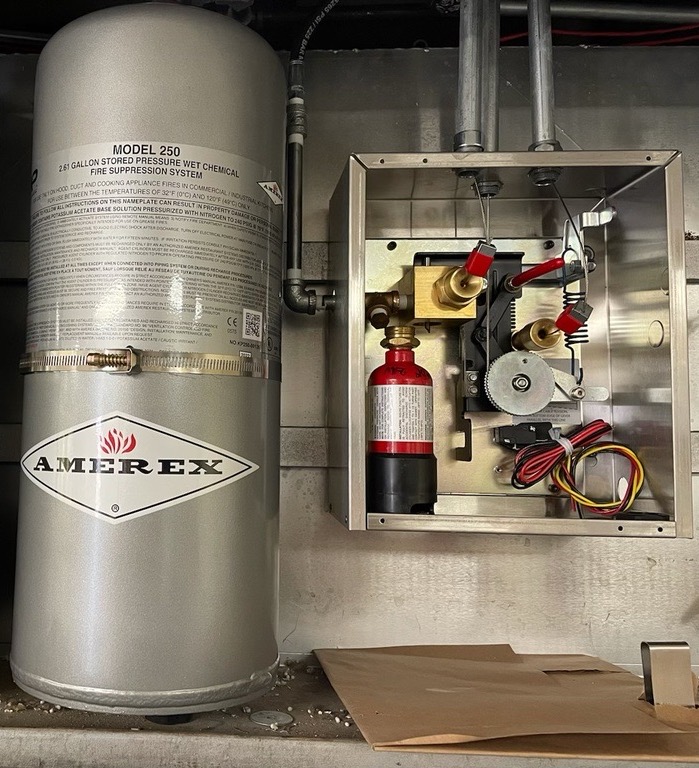Serving Raleigh NC, Durham NC, Chapel Hill NC, and surrounding areas within a 30-mile radius, we are your local experts in fire Protection Company. Our service includes Kitchen Suppression inspection, test, and Installation, fire Extinguishers maintenance and refill, Emergency Exit Light Maintenance and Commercial Hood cleaning.
 REQUEST A FREE QUOTECall (919) 229-9599
REQUEST A FREE QUOTECall (919) 229-9599

Fire suppression systems are crucial for the safety of your property and its occupants. These systems detect and suppress fires before they can spread, minimizing damage and potentially saving lives. Proper installation and regular inspections ensure that the system is always ready to perform in an emergency.
Fire suppression systems should be inspected and test every 6 months. However, more frequent inspections may be necessary depending on the specific system and local regulations. Regular maintenance and testing are essential to ensure the system's reliability and effectiveness.
REQUEST A FREE QUOTECall (919) 229-9599*some cylinders require different time frames for testing.

Our friendly and professional team is committed to ensuring your kitchen fire suppression system is safe, compliant, and ready to protect your business.
REQUEST A FREE QUOTECall (919) 229-9599Fire extinguishers are the first line of defense in controlling small fires and preventing them from escalating. Regular inspections ensure that extinguishers are in good working condition and ready for use when needed. Refilling and replacing extinguishers as required maintains their effectiveness and compliance with safety regulations.
Fire extinguishers should be inspected monthly for any visible signs of damage or tampering. A more thorough inspection by a professional should be conducted annually. Additionally, extinguishers should be refilled or replaced immediately after use, regardless of the amount discharged.


Class K fire extinguishers are specifically designed to combat fires involving cooking oils and fats, which are common in commercial kitchens. These fires can reach very high temperatures and are difficult to extinguish with standard fire extinguishers. Class K extinguishers use a special potassium-based solution that effectively saponifies the burning oils, forming a foam blanket that cools and smothers the fire.
Class K fire extinguishers should be inspected monthly for any visible damage or signs of tampering. A professional inspection should be conducted annually to ensure they are in proper working condition and comply with safety regulations. Given the high-risk environment of commercial kitchens, maintaining these extinguishers is critical to kitchen safety.
Call (252) 210-4554
Emergency exit lights are vital for guiding occupants safely out of a building during a power outage or emergency. Proper installation ensures that these lights are positioned correctly to provide maximum visibility. Regular inspections confirm that the lights are functioning correctly and that backup batteries are charged.
Emergency exit lights should be inspected monthly to ensure they are operational and that batteries are fully charged. A professional inspection should be conducted annually to test the overall system, including the duration of the emergency power supply.
Steps to Test Emergency Exit Lights: